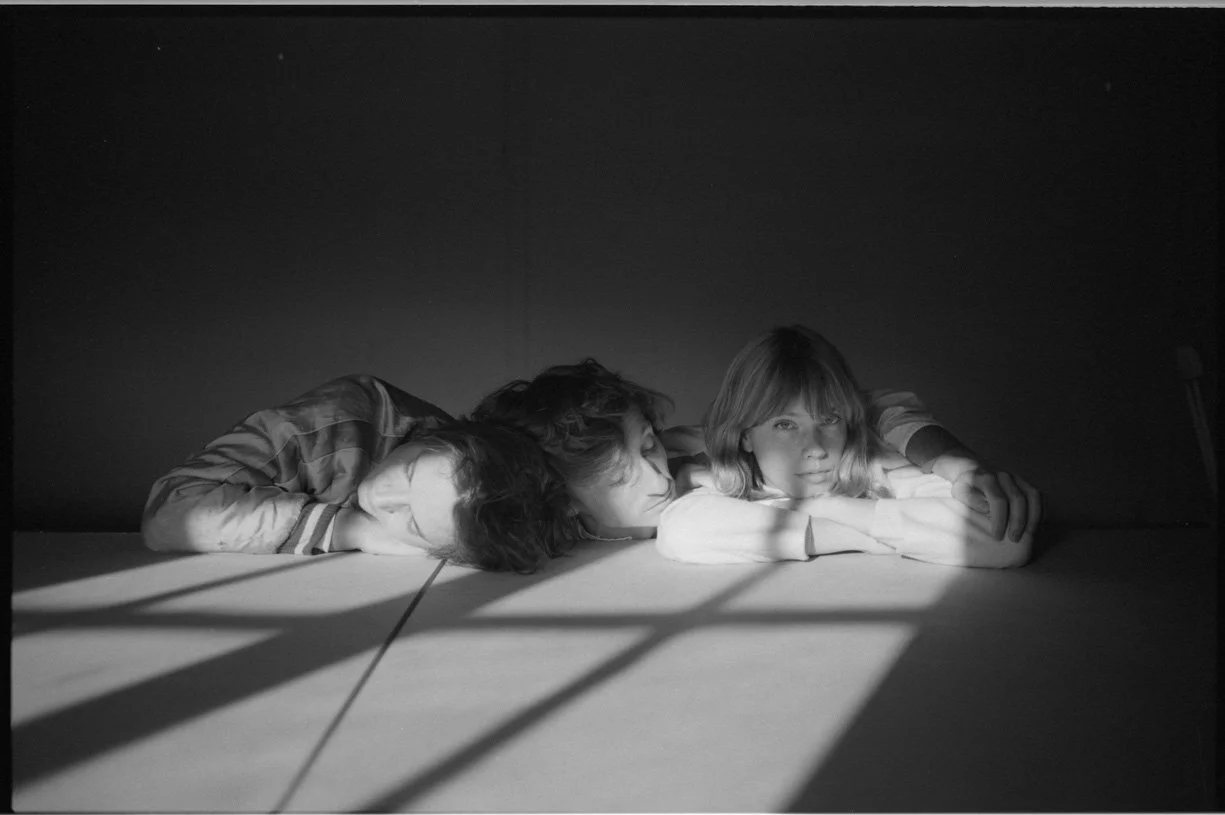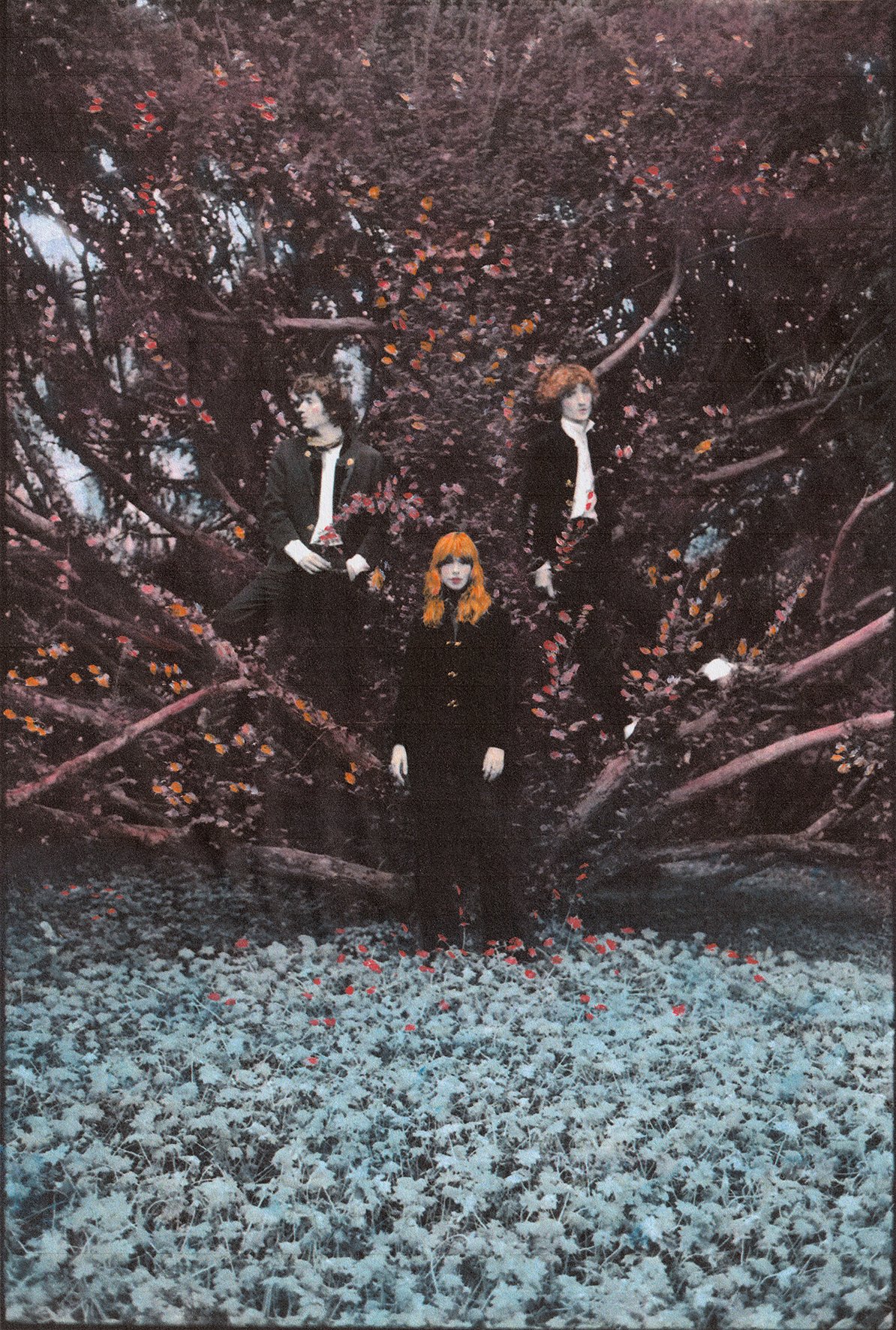Weekend Reading: Oracle Sisters
Credit: Eloise Labarbe-Lafon
Catching up with lead singer and co-founder of Oracle Sisters, Lewis Lazar, he struck a calm and engaging figure on the Zoom call from an office somewhere in Paris, having just returned with his bandmates from SXSW. He tells me they had heard some horror stories about the famed music event, but the local music scene quickly displaced those fears.
“Any free time we had, we went to explore the Honky-tonk scene, which could sound like it's a trope or like a cliche or something that's of another time, but it was amazing to discover there are a lot of young kids and young artists who really love country music and old music and carry that mantle, you know?” He tells me, “We went to this great Honky-tonk called The Broken Spoke and met an amazing fiddle player there who looked like Hank Williams and sang, you know, and was getting everyone dancing for hours. After the show, we talked to him, and he joined us on stage for a couple of our shows and we just became really good friends.”
“I happened to be there at the start of the pandemic with two friends from Ireland, both in bands, Carlos from Fontaines D.C. and James from The Murder Capital. We were playing in tavernas and singing old Irish songs”
“He pointed us to another bar outside town where we met all these bands who were out of this world and from this collective in New Orleans, where they all play together, and they're just like some of the best musicians we ever heard. So, we had a really good time melding with those cultures and getting to know them. And then we brought some of that on stage as well. You know, through this fiddle player, we normally have a saxophone solo here or there in our set, and the guy comes up and plays the saxophone. This time we brought in the fiddle. He was he was amazing. So, it was really cool in that sense.” He pauses and reflects on the trip, “I guess to discover what's local there and interact with it. Rather than just coming and doing a showcase, presenting your thing and then going, it felt really cool to mix whatever we're doing with whatever's happening there. So, who knows, we might go down and do our second album in New Orleans.”
Oracle Sisters’ debut album, ‘Hydranism’, came out in April and is a beautiful ode to the nomadic and free-wheeling spirit of music. We get talking about what was behind its genesis. “We recorded most of the album on the island of Hydra, where I had been going for many years, teaching at an artist residency, or I'd been doing an exchange where I'd give my paintings in exchange for a house there. And so, I was able to go there and live cheap… maybe I'm like the last generation of artists who can go there cheaply. But there's a very artist-friendly community there that extends themselves and encourages artists,” he says. “ I happened to be there at the start of the pandemic with two friends from Ireland… Carlos from Fontaines D.C. and James from The Murder Capital. We were playing in tavernas and singing old Irish songs…and then we ran into this guy who was opening a studio, and it seemed too good to be true! So, we found a small window and got the whole band over. And then, as soon as everyone was over, it went into lockdown again. We made the album over this second lockdown…just laid down all the drums and bass with everyone over in the house and just tried to do as much as possible live in this old carpet factory.”
Credit: Eloise Labarbe-Lafon
How has painting influenced your songs, I ask? “That's a really good question. I mean, it's weird. When I paint, I always listen to either music or people talking. It's almost like they're separate parts of the brain. The visual part of the brain is very instinctive, I think, and once you have a framework or a structure of an idea, you just go with it, and then you feel your way through what contrast of colours and what combinations of colours work and that so that part of the brain is working. And while the musical part of the brain or the linguistic part of the brain can do its own thing. I guess that's not really answering the question. I think it allowed me to see songs in a framed way. It's hard to abstractly put limits on a song because it's something intangible. It's like a well; you don't see it. It's not limited by a frame.”
I do seem to have piqued his curiosity with this question, “Or when I paint, I’ll do a series, you know, so I'll stick to a certain subject matter or palette until I'm bored of that palette. And so, in a way, it also allowed me to think of songs that way, like, okay, I'm just going to do this kind of palette of songs. So, songs in a certain key have this certain flavour to them or have this certain vibe to them. So, I say to myself, I'm going to limit my palette for this album, you know what I mean? It’s just that there is some interlinking thing there.”
“I think we started out trying to represent our recordings the best way possible, but now we’ve extended outros leaving place for spontaneity, leaving place for trying a different solo each time, bringing on the saxophone, bringing on the fiddle”
I agree and say that I feel like a song is a painting sometimes; it’s a painting that you can continually repaint or paint because you can change how it’s performed. I tell him that find that fascinating because some people are very rigid and won't change anything. “Like The Strokes,” he says, “you see them live, and they play the song exactly how it is on the record, which is amazing because he writes the songs like Mozart, you know like it's all compositionally pre-planned.”
Where do you guys fall on that spectrum? “I think we started out trying to represent our recordings the best way possible, but now we've extended outros leaving place for spontaneity, leaving place for trying a different solo each time, bringing on the saxophone, bringing on the fiddle. We try to create places in our show where we open it up and leave it open, leave parts of the show open for spontaneity, you know, so it can be different every night.”
Credit: Eloise Labarbe-Lafon
Speaking of the rest of the band, I ask about the band’s songwriting process, “Julia writes, but not as much. She joined the band after we started. Chris and I are pretty tight as a songwriting team, you know, so he'll come with some chords, we'll develop a melody based off of that, or vice versa, or he'll have a part of a song, or I'll have a part of a song, and then we'll try to finish it together. We help each other finish each other's songs, or we write them from scratch together…more rarely will we finish a song entirely separately and then bring it to the table.”
I tell him I was quite surprised when he mentioned being friends with members of The Murder Capital and Fontaines D.C. and ask him if they’d ever see themselves moving in that direction musically. “No, not really. I appreciate the lyricism in both bands a lot and the poetry, and that's always something we're aware of and maybe can integrate more. We've done a bit here and there, but more just uniquely lyrical songs, but I think we're more rooted in a different style of music. We're definitely not post-punk, and I don't think we ever will be.”
“We just try to make music that we find exciting first and foremost, you know, rather than whatever might be popular now”
I tell Lewis that that is what I appreciate about his band, that they are different from a lot of what is going on, “We just try to make music that we find exciting first and foremost, you know, rather than whatever might be popular now. And if it happens to be popular, it happens to work; then we're very happy.” I get the feeling that Lewis and his cohorts should get ready to be very happy, very soon.



